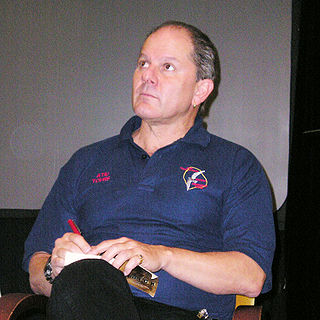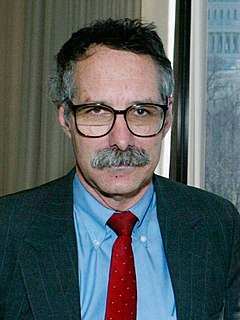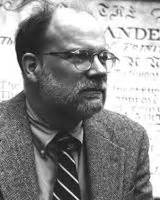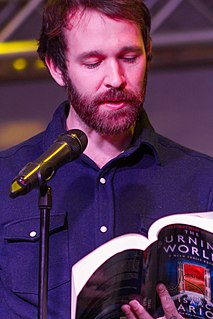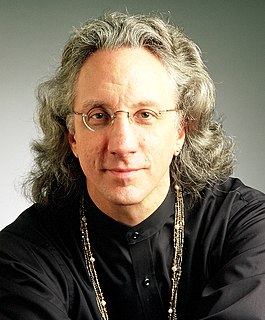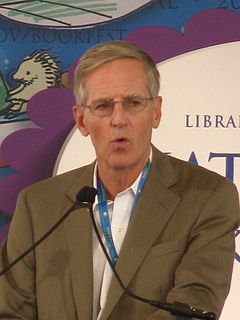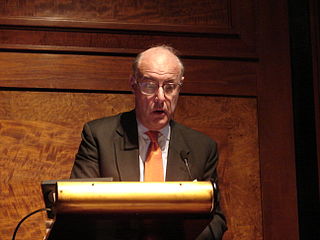Top 531 Historians Quotes & Sayings - Page 8
Explore popular Historians quotes.
Last updated on April 21, 2025.
It hurt the economic historians, the Marxists and the fabians, to admit that the Ten Hour Bill, the basic piece of 19th century legislation, came down from the top, out of aa nobleman's private feelings about the Gospel, or that the abolition of the slave trade was achieved, not through the operation of some "law" of profit and loss, but peurlet as the result of tyhe new humanitarianism of the Evangelicals.
Is there any possibility of giving international air travel, which we all need and use and hate, a touch of glamour, or even of reliable, soulless efficiency? I suspect future historians will puzzle over our failure. But by then, of course, we shall be in the age of mass space travel, with its fresh and unimaginable crop of horrors.
Cotton Mather's publications in his own lifetime amounted to more than 400 titles, and his magnum opus, on which he labored most of his life, remains unpublished: a commentary on every verse of every book of the Bible. Anyone who leaves that kind of record behind issues an irresistible invitation to historians.
An emperor knows how to govern when poets are free to make verses, people to act plays, historians to tell the truth, ministers to give advice, the poor to grumble at taxes, students to learn lessons aloud, workmen to praise their skill and seek work, people to speak of anything, and old men to find fault with everything.
Part of what made the Macintosh great was that the people working on it were musicians, poets, and artists, and zoologists, and historians. They also happened to be the best computer scientists in the world. But if it hadn't been computer science, these people would have been doing amazing things in other fields.
What does anyone really know about the impetus to go to war? And so much is uncovered in hindsight. And there are aspects of even past wars that are only coming out now. Historians discover letters here, notes there, and look very carefully at different aspects of not only any conflict but any great historical event.
Yet rather than calling the earliest religions, which embraced such an open acceptance of all human sexuality, 'fertility cults,' we might consider the religions of today as strange in that they seem to associate shame and even sin with the very process of conceiving new human life. Perhaps centuries from now scholars and historians will be classifying them as 'sterility cults.
Civilization is a stream with banks. The stream is sometimes filled with blood from people killing, stealing, shouting and doing the things historians usually record, while on the banks, unnoticed, people build homes, make love, raise children, sing songs, write poetry and even whittle statues. The story of civilization is what happened on the banks.
The postwar [WWII] GI Bill of Rights - and the enthusiastic response to it on the part of America's veterans - signaled the shift to the knowledge society. Future historians may consider it the most important event of the twentieth century. We are clearly in the midst of this transformation; indeed, if history is any guide, it will not be completed until 2010 or 2020. But already it has changed the political, economic and moral landscape of the world.
"Historians of every generation, I believe, unless they are pure antiquarians, see history against the background - the controlling background - of current events. They call upon it to explain the problems of their own time, to give to those problems a philosophical context, a continuum in which they may be reduced to proportion and perhaps made intelligible."
Historians differ on when the consumer culture came to dominate American culture. Some say it was in the twenties, when advertising became a major industry and the middle class bought radios to hear the ads and cars to get to the stores. ... But there is no question that the consumer culture had begun to crowd out all other cultural possibilities by the years following World War II.
The only points in which I differ from all ecclesiastical teaching is that I do not believe that any man ever saw or talked with God, I do not believe that God inspired the Mosaic code, or told the historians what they say he did about woman, for all the religions on the face of the earth degrade her, and so long as woman accepts the position that they assign her, her emancipation is impossible.
I am among those who believe that our Western civilization is on its way to perishing. It has many commendable qualities, most of which it has borrowed from the Christian ethic, but it lacks the element of moral wisdom that would give it permanence. Future historians will record that we of the twentieth century had intelligence enough to create a great civilization but not the moral wisdom to preserve it.
In 325 A.D., the Roman Emperor Constantine decided to unify Rome under a single religion ... Historians still marvel at the brilliance with which Constantine converted the sun-worshipping pagans to Christianity. By fusing pagan symbols, dates, and rituals into the growing Christian tradition, he created a kind of hybrid religion that was acceptable to both parties.
Probably the only people left who think that economics deserves a Nobel Prize are economists. It confirms their conceit that they're doing 'science' rather than the less tidy task of observing the world and trying to make sense of it. This, after all, is done by mere historians, political scientists, anthropologists, sociologists, and (heaven forbid) even journalists. Economists are loath to admit that they belong in such raffish company.
In the infancy of civilization, when our island was as savage as New Guinea, when letters and arts were still unknown to Athens, when scarcely a thatched roofed hut stood on what was later the site of Rome, this contemned people had their fenced cities and cedar palaces, their splendid Temple, their fleets of merchant ships, their schools of sacred learning, their great statesmen and soldiers, their natural philosophers, their historians and their poets.
Intellectuals love Jefferson and hate markets, and intellectuals write most of the books. Intellectuals often think that they should, for the benefit of mankind, act as fiduciaries for the clods who don't have to be intellectuals, and I suspect that has to do with [why historians love Jefferson and not Hamilton, even though Hamilton's vision of America's commercial future was vastly more accurate than Jefferson's].
Art historians agree that Da Vinci's paintings contain hidden levels of meaning that go well beneath the surface of the paint. Many scholars believe his work intentionally provides clues to a powerful secret... a secret that remains protected to this day by a clandestine brotherhood of which Da Vinci was a member.
The early Christians' opponents all accepted that Jesus existed, taught, had disciples, worked miracles, and was put to death on a Roman cross. As in our day, debate and disagreement centred largely not on the story but on the significance of Jesus. Today nearly all historians, whether Christians or not, accept that Jesus existed and that the gospels contain plenty of valuable evidence which has to be weighed and assessed critically.
We're historians and above all want to write about what was. Our book doesn't deal with legacies. It also wasn't our goal to destroy a legend. We consider Walesa to be a national symbol. He led Solidarity and remains an icon. But he also worked with the secret police under the name Bolek. The truth isn't always simply black and white.
Far too long, historians have accepted the claim that the conversion of the Emperor Constantine (ca. 285-337) caused the triumph of Christianity. To the contrary, he destroyed its most attractive and dynamic aspects, turning a high-intensity, grassroots movement into an arrogant institution controlled by an elite who often managed to be both brutal and lax.
It is certain that the greatest poets, orators, statesmen, and historians, men of the most brilliant and imposing talents, have labored as hard, if not harder, than day laborers; and that the most obvious reason why they have been superior to other men is that they have taken more pains than other men.
It frustrates and fascinates me that we'll never know for sure, that despite the best efforts of historians and scientists and poets, there are some things we'll just never know. What the first song sounded like. How it felt to see the first photograph. Who kissed the first kiss, and if it was any good.
Sociologists and historians have avoided looking for the family sources of wars and social violence. Whenever a group produces murderers, the early parental relationship must have been abusive and neglectful. Yet this elementary truth has not even begun to be considered in historical research; just stating that poor mothering lies behind wars seems blasphemous.
We're not going to waste our valuable space or your precious energy by giving equal time to stories of tragedy, failure, and tumult. They get far more that their fair share of attention everywhere else. Future historians might even conclude that our age suffered from a collective obsessive-compulsive disorder: the pathological need to repetitively seek out reasons for how bad life is.
I realized how valuable the art and practice of writing letters are, and how important it is to remind people of what a treasure letters--handwritten letters--can be. In our throwaway era of quick phone calls, faxes, and email, it's all to easy never to find the time to write letters. That's a great pity--for historians and the rest of us.
Change from below, the formulation of demands from the populace to end unacceptable injustice, supported by direct action, has played a far larger part in shaping British democracy than most constitutional lawyers, political commentators, historians or statesmen have ever cared to admit. Direct action in a democratic society is fundamentally an educational exercise.
In a one-hour documentary, you can tell maybe ten stories. That's how the documentary is structured. I wrote to forty of the greatest historians of both African and African-American history, and hired them as consultants. I had them submit what they thought were the indispensable stories, the ones they felt this series absolutely had to include.
Most historians accept that Egypt was a cradle of civilization, and that many cultural idioms and traditions come from there. What has yet to be understood, however, is the manner in which Egypt inherited its cultural elements from the lands of the North-West. This fact is not known today because of the threat it poses to Rome and London, the Vatican and Crown, and to all those who have profited from the suppression of knowledge.
A lot of [George Saunders] early stories now feel prophetic. Take the recent election [of Donald Trump]. Historians in 100 years might write about it as being the first internet election, in which what happened was actually an expression in the real world of a virtual reality. And you've been writing about that subject for a while.
When it is impossible to stretch the very elastic threads of historical ratiocination any farther, when actions are clearly contrary to all that humanity calls right or even just, the historians produce a saving conception of 'greatness.' 'Greatness,' it seems, excludes the standards of right and wrong. For the 'great' man nothing is wrong, there is no atrocity for which a 'great' man can be blamed.
Great historians can make the discovery of the real story more exciting than the romantic myth. Stacy Schiff, a great historian as well as a wonderful writer, peels away the layers to reveal the true Cleopatraa much more interesting woman than the Hollywood version and, as it turns out, a formidable queen after all.
Let's put it this way. I question whether 6 million Jews actually died in Nazi death camps. There are two major sources for Holocaust stories. One is the Nuremburg war-crimes trial, which has been shown by all honest historians to be a farce of justice. Another source is the great body of literature and media work, and at least 90% of that material is from biased Jewish sources.
Virtually every subject is most effectively learned directly from the greatest thinkers, historians, artists, philosophers, scientists, prophets and their original works. Great works inspire greatness. Mediocre or poor works inspire mediocre or poor learning. The great accomplishments of humanity are the key to quality education.
Future historians, I hope, will consider the American fast food industry a relic of the twentieth century--a set of attitudes, systems, and beliefs that emerged from postwar southern California, that embodied its limitless faith in technology, that quickly spread across the globe, flourished briefly, and then receded, once its true costs became clear and its thinking became obsolete.
It has been said by church historians that in those periods of Christian history where renewal, revival, and awakening took place and the church was at its strongest, that coincidental with those periods in church history, there was a strong focus on the psalms in the life of God's people-particularly in the worship of God's people.
There are a whole other range of sciences that must deal with the narrative reconstruction of the inordinately complex events of history that can occur but once in their detailed glory. And for those kinds of sciences, be it cosmology, or evolutionary biology, or geology, or palaeontology, the experimental methods, simplification, quantification, prediction and repetition of the experimental sciences don't always work. You have to go with the narrative, the descriptive methods of what? Of historians.
Somebody said, "Well, you're going to write your definitive book about your life, biography." No, I'm not. I haven't done that. I wrote a book of letters which gives an insight into the real me as opposed to the public perceptions of me. But I'm convinced historians will figure out the things we got wrong and hopefully the things we got right.
For historians ought to be precise, truthful, and quite unprejudiced, and neither interest nor fear, hatred nor affection, should cause them to swerve from the path of truth, whose mother is history, the rival of time, the depository of great actions, the witness of what is past, the example and instruction of the present, the monitor of the future.
The older I get the more I'm convinced that it's the purpose of politicians and journalists to say the world is very simple, whereas it's the purpose of historians to say, 'No! It's very complicated.'
The job of the historian is to help give people a sense of existence in time, without which we are really not fully human.
The novel is a formidable mass, and it is so amorphous - no mountain in it to climb, no Parnassus or Helicon, not even a Pisgah. It is most distinctly one of the moister areas of literature - irrigated by a hundred rills and occasionally degenerating into a swamp. I do not wonder that the poets despise it, though they sometimes find themselves in it by accident. And I am not surprised at the annoyance of the historians when by accident it finds itself among them.
As political theorist Michael Parenti points out, historians often overlook Fascism's economic agenda--the partnership between Big Capital and Big Government--in their analysis of its authoritarian social program. Indeed, according to Bertram Gross in his startlingly prescient Friendly Fascism (1980), it is possible to achieve fascist goals within an ostensibly democratic society.
We're talking about, essentially, the Roman historians, who wrote Cleopatra into the story mostly so that they could talk about the rise of Rome. And that is one of the problems, of course, in recounting her life. She's only ever apparent to us when there is a Roman in the room, or when her story intersects with the rise of Rome.
Half of the modern world goes back as far as Pearl Jam. The real historians go back to U2. But they need to go back further. They have to go back to the '50s and '60s, where things started. That's how you get to be your own personality, by studying the masters. Rock and roll was white kids trying to make black music and failing, gloriously!
I think the fault is more with historicists who have stubbornly failed to develop a good theory of historicity. By simply resting on the feeble laurels of prima facie plausibility ('Jesus existed because everyone said so') and subjective notions of absurdity ('I can't believe Jesus didn't exist!'), the existence of Jesus has largely been taken for granted, even by competent historians who explicitly try to argue for it.
Tides of History provides a splendid prism through which we may view the wider world of Victorian science. . . . Historians of science will have cause to heap praise on this book, but so too will the non-specialists. The author's splendid writing style, at times appropriately Puckish, makes this work an accessible and enjoyable read.
What happened in the interim is, billions of records have been digitized. Historians and scholars have always used genealogical records to tell the story of American history. It takes months and years of research. I can't even tell you how laborious that is. You have to be somebody who has a lot of free time, like a professor who can take tenure or someone with a great deal of leisure.
The student of biology is often struck with the feeling that historians, when dealing with the rise and fall of nations, do not generally view the phenomena from a sufficiently high biological standpoint. To me, at least, they seem to attach too much importance to individual rulers and soldiers, and to particular wars, policies, religions, and customs; while at the same time they make little attempt to extract the fundamental causes of national success or failure.
Co-operating critics comb the studios like big-league scouts, prepared to spot the art of the future and to take lead in establishing reputations. Art historians stand by ready with cameras and notebooks to make sure every novel detail is safe for the record. The tradition of the new has reduced all other traditions to triviality.
All revolutionary advances in science may consist less of sudden and dramatic revelations than a series of transformations, of which the revolutionary significance may not be seen (except afterwards, by historians) until the last great step. In many cases the full potentiality and force of a most radical step in such a sequence of transformations may not even be manifest to its author.
The choice is ours-yours and mine. We can stay with business as usual and preside over a global bubble economy that keeps expanding until it bursts, leading to economic decline. Or we can adopt Plan B and be the generation that stabilizes population, eradicates poverty, and stabilizes climate. Historians will record the choice, but it is ours to make.
I think certain periods of history don't get dealt with because I think historians, and it's their job, but they look back and look for patterns. They look for sequences and they look for reasons, and certain periods of history don't fit with the general pattern of 1500 to the 20th century, during which there's the creation of the United States.







